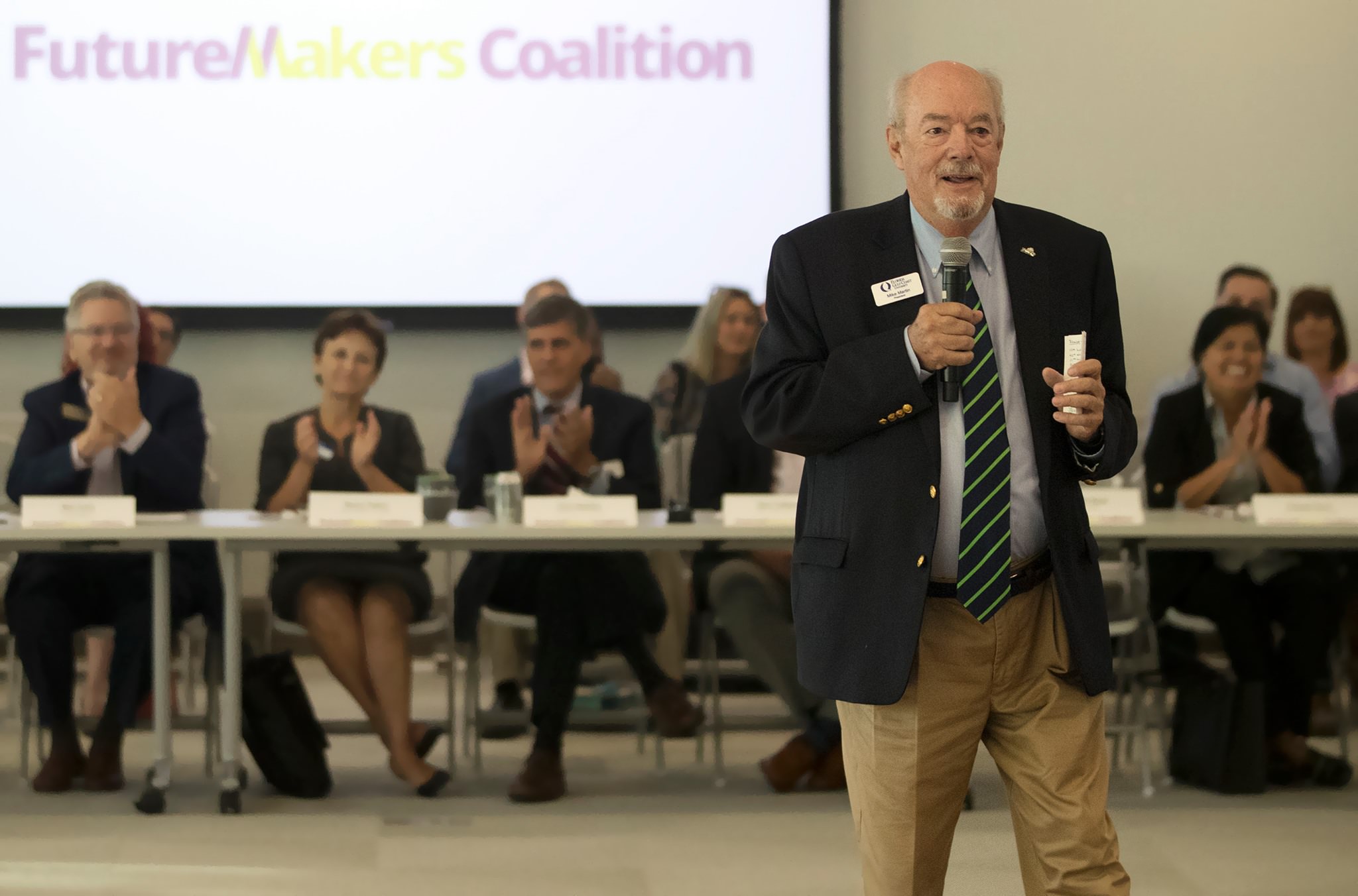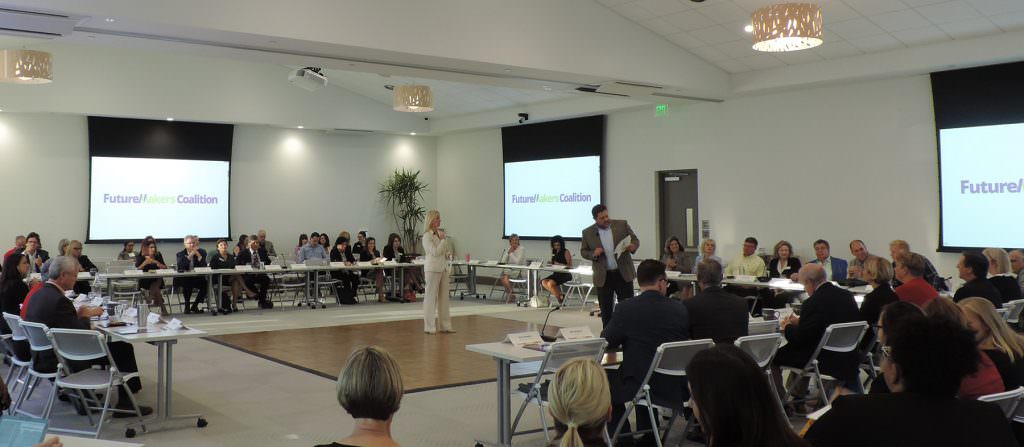
Goal to transform Southwest Florida’s workforce.
How do you get more than 70 community leaders and educators to come together to talk about moving the needle on our area’s workforce?
If you’re attendee Dr. Mike Martin, president of FGCU, you are one of 300 dedicated partners of the FutureMakers Coalition of Southwest Florida and committed to transforming the regional economy by increasing the amount of high-quality degree and credential holders to fill in-demand jobs.
The Coalition members recently met for their annual Champions Breakfast and discussed priority populations, local workforce statistics, investing in our local community and more.
“The FutureMakers Coalition is not an organization; it’s not a nonprofit; it doesn’t have a CEO and it doesn’t have a board,” said FutureMaker Tessa LeSage, Social Innovation and Sustainability director for the Southwest Florida Community Foundation, the backbone organization of the FutureMakers Coalition. “It is literally a network of people working together toward a shared goal. Our goal is to transform Southwest Florida’s workforce by increasing the proportion of people with high-quality credentials to 55 percent.”
LeSage added that more than 60 percent of the jobs in this country are going to require a degree or certificate, or other high quality credential by 2025 and that a high school diploma is just not enough.
“In Florida, even more than 60 percent of the jobs will require degrees, certificates, and other credentials in that timeframe. We aren’t there,” she said. “We don’t have the workforce to meet that need. So we need to proactively work together to transform the workforce.”
According to data provided at the meeting, the proportion of working age (25-64 year-olds) adults with a credential increased to 38.85 percent in 2017. That means 21,059 more working-age degree and certificate holders were added to the workforce since 2013 (the year before the work to form the FutureMakers Coalition began).
“This is a significant accomplishment and means we are making progress in efforts to improve the education-workforce system by working together, but we need to focus on systems change in order to reach our goal” LeSage said.
The FutureMakers Champions team discussed strategies to remove barriers for priority populations, both traditional and adult-learners, facing significant barriers to attaining post-high school credentials. These include adults with some college but no degree and those without post-high school experience – an untapped workforce.
Further examination of the data showed white students outperform their black and latinx peers in third grade reading level, high school graduation rate and degree and credential attainment. The FutureMakers Champions discussed how this signals the need to focus efforts on systemic change, rather than expecting individual students to be able to close the gaps. The data points to a system that is not working for everyone and, as such, the ability to create the skilled workforce needed in our regional economy is diminished significantly.
“It’s even more apparent when the attainment gaps across race and ethnicity are held up against the
demographics of the students currently in Southwest Florida’s K-12 system,” LeSage said. “Currently, there are more Latinx students than white students and Black and Latinx students combined make up 55 percent of the next generation of workforce.”
Several FutureMakers Champions announced new tactics for addressing these challenges. Dr. Martin announced FGCU is launching a form debt-forgiveness to attract students who previously started a degree program to return to school and complete their degree in conjunction with an array of Student Success initiatives aimed at first-time students and returning adults. Hodges University announced a First-Time Supervisor training to fill this year-over-year workforce gap across sectors. The FutureMakers Coalition Action Team will also provide an implicit bias training based on the local history of structural racism each month in 2020 in order to help create the foundation of knowledge needed to improve the workforce-education system for all students in the region. The Coalition’s Aspiration & Preparation Team announced the launch of the Power of Pre-K book and communications strategy to help families connect with high-quality early learning programs.
The event was emceed by Scott Bass, superintendent of Glades County School District and Christin Collins, system director of health and wellness at Lee Health.
The event included an update from Workforce Now, a research initiative that studies the regional workforce. Workforce Now is comprised of researchers from Florida Gulf Coast University, Hodges University and Florida SouthWestern State College, is a partner in the FutureMakers Coalition, a cross-sector coalition from Hendry, Glades, Collier, Lee and Charlotte counties with the shared goal of closing the higher education gap and, more importantly, retaining those high-skilled Southwest Floridians in jobs within the region.
Their latest study, available at fgcu.edu/wfn, shows that the long-term employment growth occupations with varying training and education needs from 2018 to 2026 are retail salespersons, nursing assistants, registered nurses, elementary school teachers and lawyers.

The FutureMakers Coalition encourages residents to join and support this community-changing initiative. For more information, visit www.FutureMakersCoalition.com, call 239-274-5900 or email Tessa LeSage at TLeSage@floridacommunity.com.



























